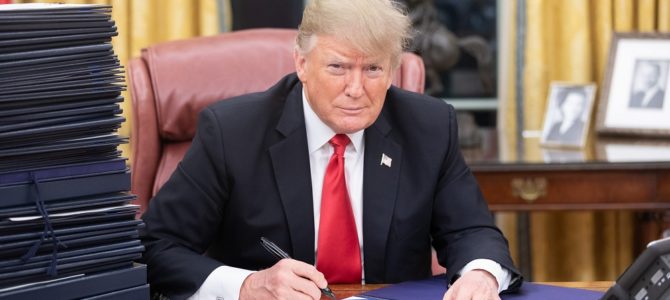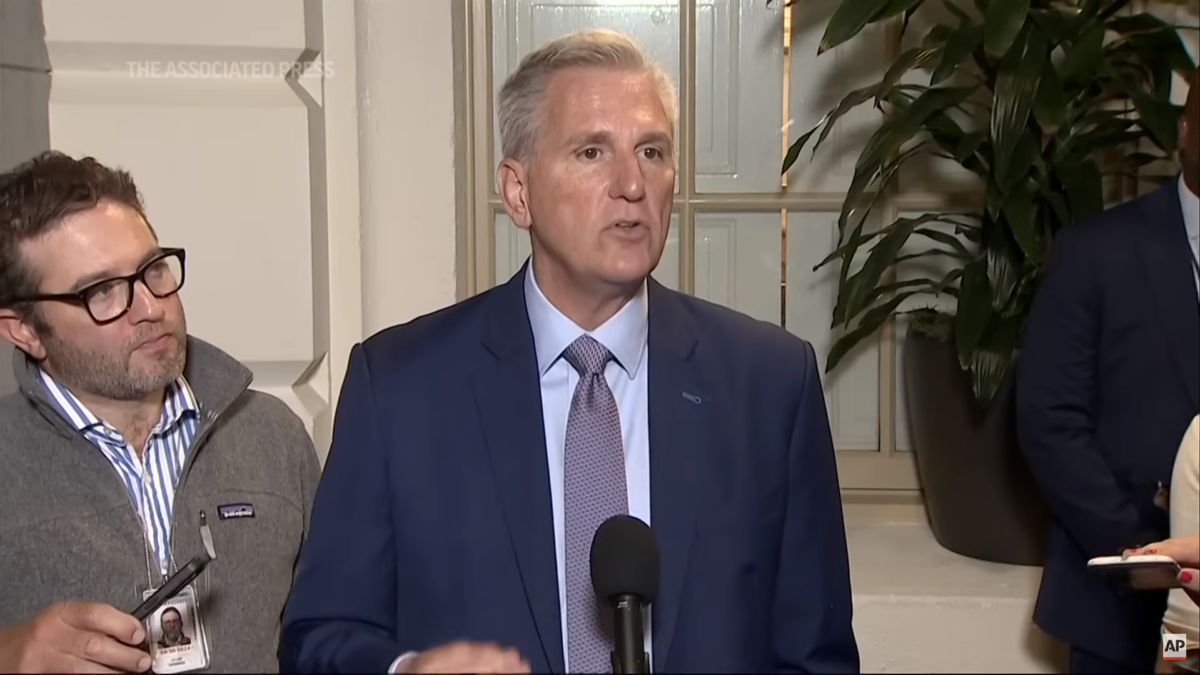
Today, the president will send Congress his proposed budget. It is the product of efforts by the Office of Management and Budget to constrain spending while honoring both our constitutional duty to defend the nation and our commitment to citizens relying on Social Security and Medicare. It is a noble effort, but only in that it even modestly attempts to be fiscally responsible.
Consider that the president’s budget proposes we spend vastly more money than we take in for 15 years, bust the spending caps again, leave ourselves with about a trillion dollars in deficit spending in fiscal 2020, accumulate debt well over $30 trillion by 2030, and lead us to spending more in interest payments than we do on Social Security or defense.
Amazingly, both Republicans and Democrats are poised to suggest with a straight face to the American people that this is fine. Why is that? Dealing with it is too hard.
Most Americans are responsible and cannot understand this reasoning. They make tough financial decisions every day. They forgo luxuries, like eating out or taking a vacation, to pay for the grocery bill, rent, and their car payment. If they borrow, they do so within their means because if they don’t they face creditors, the repo man, and other serious consequences.
Congress, on the other hand, passes laws empowering the federal government to take your hard-earned money, spend it recklessly, and then borrow more with no consequences. Indeed, just this past month, our nation achieved the dubious distinction of passing $22 trillion in debt, and with every hour that passes, it racks up another $100 million in new debt. More important than debt, all this spending empowers government and bureaucrats at the expense of our liberty and prosperity.
In a brief moment of partial sanity, Republicans in 2011 established spending caps—self-imposed limits meant to avoid creating a deficit or adding to the national debt—to respond to President Obama’s reckless spending. While admittedly a crude, blunt instrument, the result was a reduction in deficits from $1.4 trillion down to as low as $400 billion. But this trend was short-lived as Congress began “busting” those caps, culminating in $300 billion in busted caps over the last two years.
They do this for several reasons. First, because Republicans are not unreasonably concerned about the sizable cuts to defense spending, our core constitutional function, that resulted from the caps. Second, because Democrats demand that every dollar spent on defense be met with a dollar spent on social and other non-defense programs, and will hold defense spending hostage to get it. Few in Washington will have the conversation that Econ 101 students will have—that is, choosing between guns and butter.
Third, and finally, both parties hide behind so-called entitlement reform that no one seriously proposes. Members of both parties constantly tell me something like “You’ll quickly learn that the real problem is the 70 percent of spending that is mandatory.” Uh-huh.
But I wasn’t here when Congress put programs like the farm bill and food stamps on auto-pilot. I wasn’t in Congress in 2005 when it ran away from George W. Bush’s effort to reform Social Security. And discretionary spending is, in fact, the primary funder of the bureaucratic state otherwise known as the “swamp.” So color me unimpressed.
That brings us back to the president’s budget, which at least leverages the fact the current law—that requires caps to kick in—is a bit on our side. It takes a modest, albeit insufficient, step to limit spending to the cap levels while busting the caps only to achieve the president’s desired defense spending. The president is putting forth this proposal because it is the bare minimum he expects that we members of Congress would accept. The White House could do better, if only Congress were ready to get serious about spending.
It will reduce overall spending from 2019 to 2020. It will fund defense at the level the president deems necessary to secure our nation today and in the future, a level I am happy to debate moving upward or downward provided that we do so working to properly defend the nation and adhere to the existing caps on non-defense spending.
I would prefer we stick to the caps 100 percent, including defense spending, then do our job to make tough choices just like every family has to do. If we want to increase defense spending, we should offset it somewhere else. If we want to increase “butter,” we should re-think what we demand of our military with the limited resources we have. But the least we can do is follow the president’s plan.
Our children are counting on us. Defense Secretary James Mattis was correct that the national debt is our nation’s biggest threat to national security. Indeed, our future military will need resources to fight that we can’t mortgage away now.
Hold. To. The. Caps.









